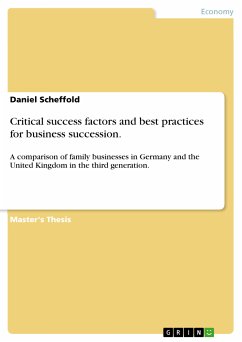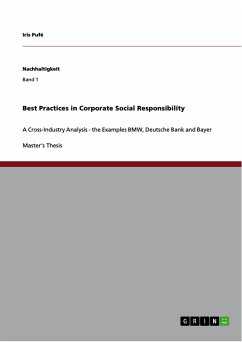Master's Thesis from the year 2013 in the subject Business economics - Business Management, Corporate Governance, grade: 1,3, University of Applied Sciences Stuttgart (Fakultät für Wirtschaft), course: General Management/ International Business Management, language: English, abstract: Purpose: Knowledge of the factors that influence success in the succession of family businesses is limited. Despite recent studies, theory cannot explain why only 10 % of all family businesses make it to the third generation. The aim of this dissertation is to identify critical success factors for succession in family businesses. Methodology: A qualitative multiple-case study design with third-generation family businesses, two from Germany and one from the UK was employed. A cross-case analysis was carried out to identify critical success factors and then complemented by a single-case analysis. Findings: Nine of the ten tested hypotheses were confirmed. These were successor development, professionalization, knowledge transfer, capital structure, corporate governance, family harmony, stepping aside, succession planning and long-term orientation. The hypothesis about dividend policy was not confirmed. No significant differences were found to be based on national influence. Practical Implications: From the results, a new model for family business succession is developed which leads to four best practice recommendations. These are the implementation of shared leadership, linking ownership to management; ensure communication in the family to create family harmony and the use of outside consultants. Limitations: Due to the case study design, this research does not provide statistical generalizable findings. Originality/ Value: This study increases the knowledge about critical success factors of succession in family businesses. The use of cases from two countries and three different industries increases the significance. The newly developed model for family business succession proposes a new view on the succession process that should be tested by future studies.









